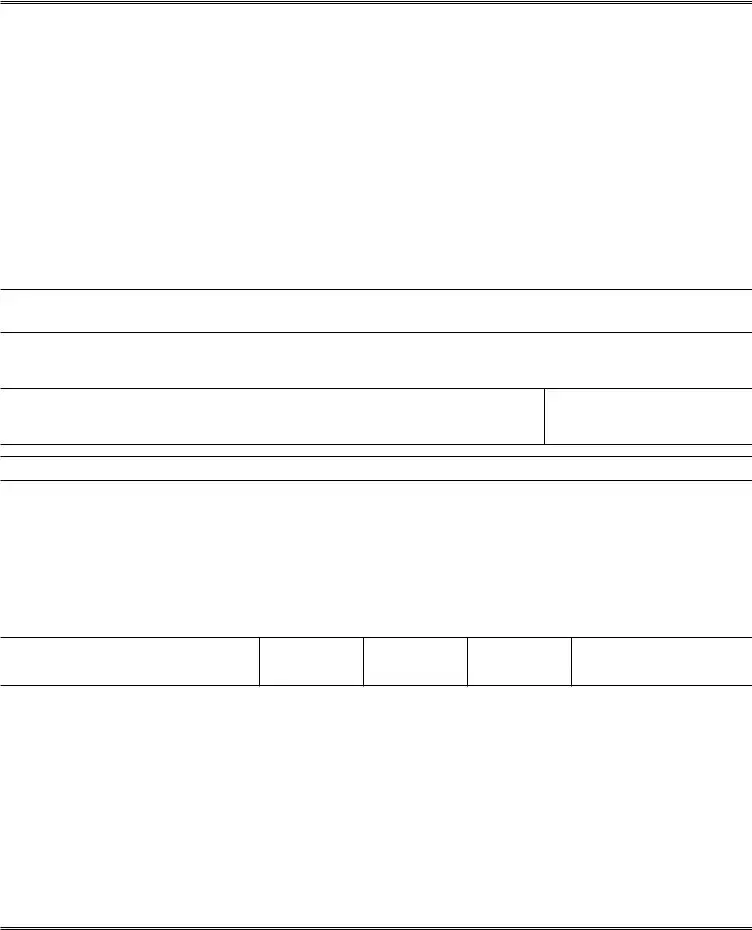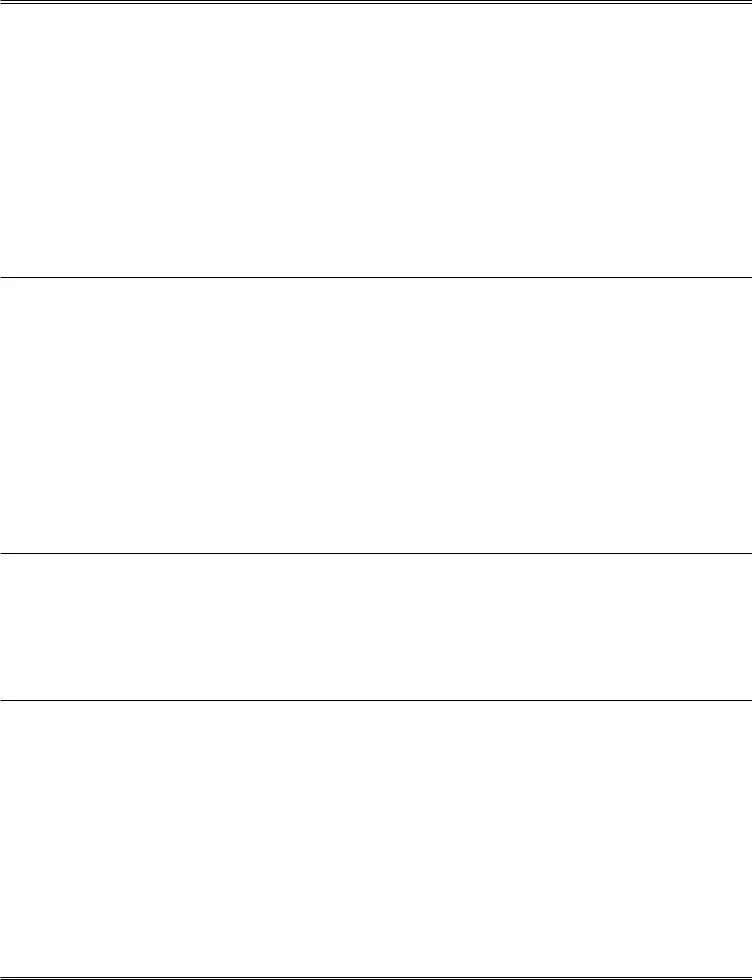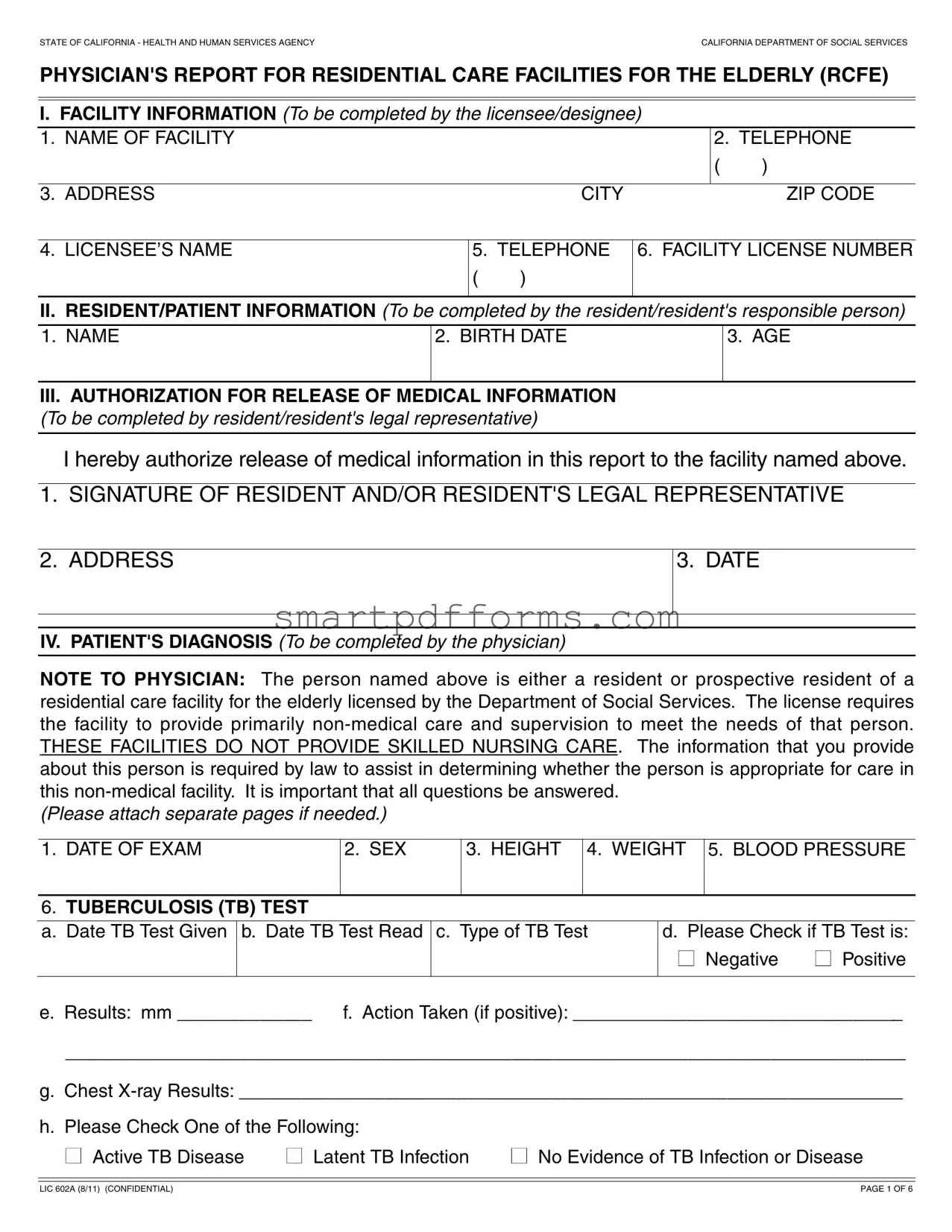Blank Lic 602A PDF Template
Navigating the complexities of healthcare and residential care facilities for the elderly (RCFE) in California involves a multitude of forms and reports, one of which is the crucial LIC 602A form. Known formally as the Physician's Report for Residential Care Facilities for the Elderly, this document serves as a comprehensive assessment of a resident's or prospective resident's health status and needs, created to ensure that individuals are placed in environments that can adequately meet their non-medical and medical needs. It is divided into several sections, each addressing different aspects of a patient's care—from basic facility and resident information, diagnoses, treatment plans, to detailed evaluations of physical and mental health, medication management, and ambulatory status. The form also includes explicit consent for the release of this medical information to the named facility, emphasizing the importance of privacy and authorized information sharing. Moreover, this form underscores the collaborative effort between health care providers and elder care facilities, aiming to strike the right balance between independence and necessary care. Its thorough nature aids in the crucial decision-making process regarding the appropriateness of a residential care facility for an individual's unique needs, making it a key document in the realm of elder care services.
Preview - Lic 602A Form

STATE OF CALIFORNIA - HEALTH AND HUMAN SERVICES AGENCY |
CALIFORNIA DEPARTMENT OF SOCIAL SERVICES |
PHYSICIAN'S REPORT FOR RESIDENTIAL CARE FACILITIES FOR THE ELDERLY (RCFE)
I.FACILITY INFORMATION (To be completed by the licensee/designee)
1. |
NAME OF FACILITY |
|
|
|
2. TELEPHONE |
|
|
|
|
|
|
( |
) |
|
|
|
|
|
|
|
3. |
ADDRESS |
|
CITY |
|
|
ZIP CODE |
|
|
|
|
|||
4. |
LICENSEE’S NAME |
5. TELEPHONE |
6. FACILITY LICENSE NUMBER |
|||
|
|
( |
) |
|
|
|
|
|
|
|
|
|
|
II. RESIDENT/PATIENT INFORMATION (To be completed by the resident/resident's responsible person)
1. NAME |
2. BIRTH DATE |
3. AGE |
|
|
|
III. AUTHORIZATION FOR RELEASE OF MEDICAL INFORMATION (To be completed by resident/resident's legal representative)
I hereby authorize release of medical information in this report to the facility named above.
1. SIGNATURE OF RESIDENT AND/OR RESIDENT'S LEGAL REPRESENTATIVE
2. ADDRESS
3. DATE
IV. PATIENT'S DIAGNOSIS (To be completed by the physician)
NOTE TO PHYSICIAN: The person named above is either a resident or prospective resident of a residential care facility for the elderly licensed by the Department of Social Services. The license requires the facility to provide primarily
(Please attach separate pages if needed.)
1. DATE OF EXAM
2. SEX
3. HEIGHT
4. WEIGHT
5. BLOOD PRESSURE
6. TUBERCULOSIS (TB) TEST
a. Date TB Test Given |
b. Date TB Test Read |
c. Type of TB Test |
d. Please Check if TB Test is: |
|
|
|
|
■ Negative |
■ Positive |
|
|
|
|
|
e. Results: mm _____________ f. Action Taken (if positive): ________________________________
_________________________________________________________________________________
g.Chest
h.Please Check One of the Following:
■ Active TB Disease |
■ Latent TB Infection |
■ No Evidence of TB Infection or Disease |
LIC 602A (8/11) (CONFIDENTIAL) |
PAGE 1 OF 6 |

7.PRIMARY DIAGNOSIS:
a. Treatment/medication (type and dosage)/equipment:
b. Can patient manage own treatment/medication/equipment? ■ Yes |
■ No |
c.If not, what type of medical supervision is needed?
8.SECONDARY DIAGNOSIS(ES):
a.Treatment/medication (type and dosage)/equipment:
b. Can patient manage own treatment/medication/equipment? ■ Yes |
■ No |
c.If not, what type of medical supervision is needed?
9.CHECK IF APPLICABLE TO 7 OR 8 ABOVE:
■Mild Cognitive Impairment: Refers to people whose cognitive abilities are in a “conditional state” between normal aging and dementia.
■Dementia: The loss of intellectual function (such as thinking, remembering, reasoning, exercising judgement and making decisions) and other cognitive functions, sufficient to interfere with an individual’s ability to perform activities of daily living or to carry out social or occupational activities.
10.CONTAGIOUS/INFECTIOUS DISEASE:
a.Treatment/medication (type and dosage)/equipment:
b. Can patient manage own treatment/medication/equipment? ■ Yes |
■ No |
c.If not, what type of medical supervision is needed?
LIC 602A (8/11) (CONFIDENTIAL) |
PAGE 2 OF 6 |

11.ALLERGIES:
a. Treatment/medication (type and dosage)/equipment:
b. Can patient manage own treatment/medication/equipment? ■ Yes |
■ No |
c.If not, what type of medical supervision is needed?
12.OTHER CONDITIONS:
a.Treatment/medication (type and dosage)/equipment:
b. Can patient manage own treatment/medication/equipment? ■ Yes |
■ No |
c.If not, what type of medical supervision is needed?
13. PHYSICAL HEALTH STATUS |
YES |
NO |
ASSISTIVE DEVICE |
EXPLAIN |
||
|
|
|
|
|
(If applicable) |
|
|
a. Auditory Impairment |
|
|
|
|
|
|
|
|
|
|
|
|
|
b. Visual Impairment |
|
|
|
|
|
|
|
|
|
|
|
|
|
c. Wears Dentures |
|
|
|
|
|
|
|
|
|
|
|
|
|
d. Wears Prosthesis |
|
|
|
|
|
|
|
|
|
|
|
|
|
e. |
Special Diet |
|
|
|
|
|
|
|
|
|
|
|
|
f. |
Substance Abuse Problem |
|
|
|
|
|
|
|
|
|
|
|
|
g. |
Use of Alcohol |
|
|
|
|
|
|
|
|
|
|
|
|
h. |
Use of Cigarettes |
|
|
|
|
|
|
|
|
|
|
|
|
i. |
Bowel Impairment |
|
|
|
|
|
|
|
|
|
|
|
|
j. |
Bladder Impairment |
|
|
|
|
|
|
|
|
|
|
|
|
k. |
Motor Impairment/Paralysis |
|
|
|
|
|
|
|
|
|
|
|
|
l. |
Requires Continuous |
|
|
|
|
|
|
Bed Care |
|
|
|
|
|
|
|
|
|
|
|
|
m. History of Skin Condition |
|
|
|
|
|
|
|
or Breakdown |
|
|
|
|
|
|
|
|
|
|
|
LIC 602A (8/11) (CONFIDENTIAL) |
PAGE 3 OF 6 |

14. MENTAL CONDITION |
YES |
NO |
EXPLAIN |
||
|
a. Confused/Disoriented |
|
|
|
|
|
|
|
|
|
|
|
b. Inappropriate Behavior |
|
|
|
|
|
|
|
|
|
|
|
c. Aggressive Behavior |
|
|
|
|
|
|
|
|
|
|
|
d. Wandering Behavior |
|
|
|
|
|
|
|
|
|
|
|
e. Sundowning Behavior |
|
|
|
|
|
|
|
|
|
|
|
f. |
Able to Follow Instructions |
|
|
|
|
|
|
|
|
|
|
g. |
Depressed |
|
|
|
|
|
|
|
|
|
|
h. |
|
|
|
|
|
|
|
|
|
|
|
i. |
Able to Communicate Needs |
|
|
|
|
|
|
|
|
|
|
j. |
At Risk if Allowed Direct |
|
|
|
|
|
Access to Personal |
|
|
|
|
|
Grooming and Hygiene Items |
|
|
|
|
|
|
|
|
|
|
k. |
Able to Leave Facility |
|
|
|
|
|
Unassisted |
|
|
|
|
|
|
|
|
|
15. CAPACITY FOR |
YES |
NO |
EXPLAIN |
||
|
|
|
|
|
|
|
a. Able to Bathe Self |
|
|
|
|
|
|
|
|
|
|
|
b. Able to Dress/Groom Self |
|
|
|
|
|
|
|
|
|
|
|
c. Able to Feed Self |
|
|
|
|
|
|
|
|
|
|
|
d. Able to Care for Own |
|
|
|
|
|
|
Toileting Needs |
|
|
|
|
|
|
|
|
|
|
e. Able to Manage Own |
|
|
|
|
|
|
Cash Resources |
|
|
|
|
|
|
|
|
|
16. MEDICATION MANAGEMENT |
YES |
NO |
EXPLAIN |
||
a.Able to Administer Own Prescription Medications
b.Able to Administer Own Injections
c.Able to Perform Own Glucose Testing
d.Able to Administer Own PRN Medications
e.Able to Administer Own Oxygen
f.Able to Store Own Medications
LIC 602A (8/11) (CONFIDENTIAL) |
PAGE 4 OF 6 |

17. AMBULATORY STATUS:
a. 1. This person is able to independently transfer to and from bed: ■ Yes |
■ No |
||
2. For purposes of a fire clearance, this person is considered: |
|
||
■ Ambulatory |
■ Nonambulatory |
■ Bedridden |
|
Nonambulatory: A person who is unable to leave a building unassisted under emergency conditions. It includes any person who is unable, or likely to be unable, to physically and mentally respond to a sensory signal approved by the State Fire Marshal, or to an oral instruction relating to fire danger, and/or a person who depend upon mechanical aids such as crutches, walkers, and wheelchairs.
Note: A person who is unable to independently transfer to and from bed, but who does not need assistance to turn or reposition in bed, shall be considered
Bedridden: For the purpose of a fire clearance, this means a person who requires assistance with turning or repositioning in bed.
b. If resident is nonambulatory, this status is based upon:
■ Physical Condition |
■ Mental Condition |
■ Both Physical and Mental Condition |
c.If a resident is bedridden, check one or more of the following and describe the nature of the illness, surgery or other cause:
■llness: ____________________________________________________________________
■Recovery from Surgery: ______________________________________________________
■Other: ____________________________________________________________________
NOTE: An illness or recovery is considered temporary if it will last 14 days or less.
d.If a resident is bedridden, how long is bedridden status expected to persist?
1.__________ (number of days)
2.______________________ (estimated date illness or recovery is expected to end or when resident will no longer be confined to bed)
3.If illness or recovery is permanent, please explain: __________________________________
__________________________________________________________________________
__________________________________________________________________________
__________________________________________________________________________
LIC 602A (8/11) (CONFIDENTIAL) |
PAGE 5 OF 6 |

e. Is resident receiving hospice care?
|
■ No |
■ Yes If yes, specify the terminal illness: ________________________________ |
|||
18. |
PHYSICAL HEALTH STATUS: |
■ Good |
■ Fair |
■ Poor |
|
19. |
COMMENTS: |
|
|
|
|
20. PHYSICIAN'S NAME AND ADDRESS (PRINT)
21.TELEPHONE
( )
22. LENGTH OF TIME RESIDENT HAS BEEN YOUR PATIENT
23. PHYSICIAN'S SIGNATURE
24. DATE
LIC 602A (8/11) (CONFIDENTIAL) |
PAGE 6 OF 6 |
Form Data
| Fact Name | Description |
|---|---|
| Form Title | PHYSICIAN'S REPORT FOR RESIDENTIAL CARE FACILITIES FOR THE ELDERLY (RCFE) |
| Form Identification | LIC 602A |
| Issuing Agency | CALIFORNIA DEPARTMENT OF SOCIAL SERVICES |
| Governing Law | The form is required by California law to assist in determining the appropriateness of an individual for care in a non-medical facility. |
| Primary Purpose | To provide detailed medical information about an individual who is a resident or prospective resident of a Residential Care Facility for the Elderly (RCFE), ensuring they receive appropriate care. |
| Content Requirements | Includes sections for facility information, resident/patient information, authorization for release of medical information, patient's diagnosis, physical health status, mental condition, capacity for self-care, medication management, and ambulatory status. |
| Significance of TB Testing | Includes a specific section for tuberculosis (TB) testing, which is crucial for the safety and well-being of all residents within the facility. |
Instructions on Utilizing Lic 602A
Filling out the LIC 602A form is a crucial step when enrolling a resident into a Residential Care Facility for the Elderly (RCFE). This form, mandated by the California Department of Social Services, gathers comprehensive information regarding the prospective resident's health status and care needs. This ensures the facility can provide adequate care. Let's walk through the process of completing this form accurately.
- Under I. FACILITY INFORMATION, the licensee or their designee should fill out the facility's name, telephone number, address including city and zip code, the licensee’s name, their telephone, and the facility license number.
- In II. RESIDENT/PATIENT INFORMATION, the section is to be filled by the resident or their responsible person. Include the resident's name, birth date, and age.
- For III. AUTHORIZATION FOR RELEASE OF MEDICAL INFORMATION, the resident or the resident's legal representative must authorize the release of medical information by signing their name, providing their address, and dating the document.
- Section IV. PATIENT'S DIAGNOSIS is for the physician to complete thoroughly. Include the date of exam, patient's sex, height, weight, blood pressure, and TB test details including dates and results. Additionally, check the appropriate boxes related to TB, including any actions taken if positive.
- Detail the primary and secondary diagnoses, including treatments/medications, the patient's ability to manage their treatment, and any necessary medical supervision.
- Mark if there is mild cognitive impairment or dementia, and note any contagious/infectious diseases, allergies, other conditions, and physical health status—specifying any assistive devices needed.
- Fill out the mental condition, capacity for self-care, medication management, and ambulatory status sections, providing explanations as required.
- Lastly, if the resident is nonambulatory or bedridden, indicate the reason and duration, and if it's considered temporary or permanent, provide a detailed explanation.
Once completed, ensure the LIC 602A form is signed by the responsible parties where indicated. The comprehensive nature of this form allows for a clear understanding of the resident's health requirements, supporting the facility in offering personalized and appropriate care.
Obtain Answers on Lic 602A
What is the LIC 602A form used for?
The LIC 602A form, also known as the Physician's Report for Residential Care Facilities for the Elderly (RCFE), is a document used in the state of California. It's filled out by a physician to provide detailed medical information about a resident or prospective resident of a RCFE. This information assists the facility in determining whether they can adequately meet the needs of the individual, considering these facilities primarily offer non-medical care and supervision. Completing this form is a legal requirement aimed at ensuring the resident's health and safety in a non-medical setting.
Who is required to complete the LIC 602A form?
- The facility information section must be filled out by the licensee or their designee.
- The resident/patient information and authorization for release of medical information sections are completed by the resident or the resident's legal representative.
- The patient's diagnosis and other medical details section is completed by the physician taking care of the resident or prospective resident.
What type of information is required on the LIC 602A form?
The form requires comprehensive information divided into several sections, including facility details, patient's personal and medical information, diagnoses (primary and secondary), infectious diseases, allergies, other conditions, physical and mental health status, capacity for self-care, medication management, and ambulatory status. This encompasses everything from basic identification details to specific medical diagnoses, treatments, and the patient's ability to manage various aspects of daily living and emergencies.
Is the LIC 602A form confidential?
Yes, the LIC 602A form is marked as confidential. The information provided on the form is protected and should only be shared with individuals or entities that have a legal right or explicit consent to access it. This safeguards the privacy of the resident's personal and medical information, aligning with privacy laws and regulations.
How often does the LIC 602A need to be updated or resubmitted?
The frequency at which the LIC 602A form needs to be updated or resubmitted varies depending on changes in the resident's health status or regulatory requirements. However, it is generally advisable to update the form whenever there is a significant change in the resident's condition, treatments, or care needs. It ensures that the RCFE has current information to provide appropriate care. Regular reviews of the resident's health status and communication with the facility can help determine the need for updates.
What happens if the information on the LIC 602A form indicates that a resident requires care beyond what the RCFE can provide?
If the medical information provided on the LIC 602A form suggests that a resident or prospective resident requires a level of care or specialized medical services that exceed what the RCFE is licensed to provide, the facility is responsible for discussing these needs with the resident and their family. In such cases, it may be necessary to consider alternative care options, such as a facility equipped to provide the required level of medical care. This ensures that individuals receive the appropriate level of care and support according to their health status.
Common mistakes
Filling out the Lic 602A form, or the Physician's Report for Residential Care Facilities for the Elderly (RCFE), is a crucial step in ensuring individuals receive the appropriate care and attention they need. However, there are common mistakes that can lead to delays or inaccuracies in the process. It's important to be mindful of these errors to ensure the information provided is accurate and complete.
Not thoroughly checking the facility information section, including the name and license number of the facility, can lead to misdirected forms or confusion about where the resident will be cared for.
Skipping over the resident/patient information part, especially details like the date of birth and age, compromises the accuracy of the identification process.
Forgetting to sign the authorization for release of medical information section or not providing a complete address limits the legal use of the information shared within the form.
Omitting the date of the exam from the patient's diagnosis can raise questions about the relevancy of the current medical assessment.
Leaving the tuberculosis (TB) test results, including the dates given and read, and the action taken if positive, incomplete. This omission can pose health risks not only to the potential resident but also to others at the facility.
Not specifying the primary and secondary diagnoses, treatments, medications, and required medical supervision leaves out critical information needed to ensure proper care.
Ignoring or inaccurately checking the boxes regarding the patient’s cognitive condition (e.g., mild cognitive impairment or dementia) can lead to an inappropriate care setting for the resident’s needs.
Overlooking the resident’s allergies, other conditions, and their ability to manage their own treatment can significantly impact the resident's well-being and safety.
Missing out on accurately detailing the resident's physical health status, including assistive devices and capability for self-care, can result in inadequate care arrangements.
These common mistakes underscore the importance of providing detailed and accurate information on the Lic 602A form. It's not just a paperwork exercise; it's a critical step in ensuring the health and safety of elderly individuals as they transition to a residential care setting. Taking the time to double-check the form can make a significant difference in the lives of those we aim to serve.
Documents used along the form
When completing or submitting the LIC 602A form, which is a Physician's Report for Residential Care Facilities for the Elderly (RCFE), additional documents are often needed to ensure a comprehensive understanding of a resident's health and care requirements. These documents support the information provided in the LIC 602A, offering a detailed view of the individual's medical condition, history, and specific needs. Below are some of these crucial forms and documents.
- LIC 601: Health and Safety Code Requirements – This form documents the facility's adherence to health and safety codes, providing a safe environment for its residents.
- LIC 308: Facility Sketch – Offers a detailed layout of the facility, ensuring that it meets the space and safety requirements for its residents.
- LIC 624: Unusual Incident/Injury Report – Used to document any incidents or injuries that occur within the facility, outlining the circumstances and how the situation was handled.
- LIC 622: Residential Care Facility for the Elderly (RCFE) Personnel Record – Contains background checks and qualifications of staff members to ensure they are fit to provide care.
- Consent for Treatment Form: Allows medical professionals to perform treatments or administer medications as needed, based on the resident's health status.
- Emergency Contact Form: Provides contact information for family members or guardians in case of emergencies.
- Medication Administration Record (MAR): A comprehensive log of all medications administered to the resident, including dosages and times.
- Advance Healthcare Directive: Details a resident's preferences for medical treatment and end-of-life care, ensuring their wishes are respected.
- Privacy Practices Acknowledgment Form: Confirms that the resident has been informed of the facility's privacy practices regarding their personal health information.
Together, these documents complement the LIC 602A form, creating a robust profile of a resident's health status and care preferences. It's important for facilities to gather and maintain these forms diligently, as they are crucial for providing personalized and adequate care, ensuring regulatory compliance, and preparing for any potential emergencies or health changes in their residents.
Similar forms
The Lic 602A form operates similarly to a Medical History Form, which is usually filled out at doctor's offices or hospitals. Both forms collect comprehensive health information, including diagnoses, treatments, and medication details. The primary goal is to ensure the individual's medical needs are well-understood and can be adequately met, whether in a healthcare setting or a residential care facility.
Similar to the Health Insurance Portability and Accountability Act (HIPAA) Authorization Form, the Lic 602A includes a section for the authorization for the release of medical information. This segment ensures compliance with privacy laws by obtaining consent from the resident or their legal representative to share their medical information with the facility, just as the HIPAA form regulates the handling and sharing of health information to protect patient privacy.
It resembles a Disability Verification Form, which is used to verify an individual's disability status for various purposes, such as accommodations at work or application for disability benefits. The Lic 602A's sections that detail the resident's physical and mental condition, including mobility information and capacity for self-care, serve a similar purpose of assessing the individual's needs and capabilities to ensure appropriate care and accommodations are provided.
Likewise, the Lic 602A is akin to a Prescription Medication List, which patients might carry or complete for healthcare providers. This form or list documents all current medications, dosages, and the prescribing doctor. On the Lic 602A, detailed information regarding treatment/medication, including types and dosages, is required. This ensures the residential care facility is aware of and can manage the resident's medication needs, emphasizing the importance of accurate and updated medication information in both contexts.
Dos and Don'ts
When filling out the LIC 602A form, it's crucial to handle the information accurately and respectfully. This form serves a critical role in ensuring individuals receive appropriate care and accommodation in residential care facilities for the elderly. Here are some guidelines to follow:
Do:
Review the entire form before beginning to ensure you understand all the required information.
Gather all necessary medical records and information about the resident/patient to provide comprehensive details.
Use a pen with black or blue ink to ensure the form is legible and can be duplicated without issues.
Consult with the resident's physician, if necessary, to clarify any medical information or diagnosis.
Ensure that the resident or the resident's legal representative signs the authorization for the release of medical information.
Attach additional pages if needed, clearly labeling them as part of the LIC 602A form to avoid any loss of information.
Double-check the form for completeness and accuracy before submission.
Don't:
Rush through the form without paying attention to detail.
Leave sections incomplete unless specified that they do not apply to the resident/patient.
Use pencil or non-standard ink colors which may smudge or not copy well.
Assume medical terms are universally understood; provide explanations for specific conditions or care needs as required.
Forget to update the form if the resident's condition changes, to ensure ongoing care needs are met.
Ignore the privacy and confidentiality of the information being handled; share it only with those directly involved in the care process.
Submit the form without having the resident or their legal representative review it, ensuring their agreement and understanding.
Misconceptions
When it comes to the License 602A form, essential for the operation of Residential Care Facilities for the Elderly (RCFEs) in California, there are several misconceptions that can cloud the understanding of its purpose and requirements. Clearing up these misconceptions is key to ensuring that facilities and residents alike are well-informed and prepared for the responsibilities and rights outlined within this document.
Only for Initial Admittance: A common misconception is that the Lic 602A form is only required at the time of a resident's initial admittance into an RCFE. However, updates or revisions may be necessary if a resident's health situation changes significantly, to ensure the facility can continue to meet their needs appropriately.
Medical Care Provision: Some believe this form indicates the facility will provide medical care akin to that of a skilled nursing facility. The document clearly states RCFEs do not provide skilled nursing care, emphasizing the non-medical, primarily supervisory and basic care nature of services offered.
Physician's Role: There's a misconception that any healthcare professional can complete the form. It must be filled out by a licensed physician who has examined the resident, providing an accurate and comprehensive assessment of the resident’s health status.
Privacy Concerns: Residents or their families sometimes worry that filling out the Lic 602A form compromises their privacy. The form is confidential, designed to be shared only among the resident (or their legal representative), the facility, and the Department of Social Services to ensure suitable care arrangements.
Includes Mental Health Evaluation: Some might think the form only focuses on physical health. However, it encompasses both physical and mental health statuses, including cognitive impairments and capacity for self-care, to provide a holistic view of a resident’s needs.
No Need for Regular Updates: A common misunderstanding is once the form is completed, no further action is required. It is essential to update the form if there are any significant changes in a resident's health condition, to ensure their needs are being met continuously and effectively within the facility.
Understanding the Lic 602A form is vital for everyone involved in the care process within RCFEs. Dispelling these misconceptions can lead to better communication and care practices, ensuring that residents receive the appropriate care and support they need.
Key takeaways
Understanding the LIC 602A form, officially titled Physician's Report for Residential Care Facilities for the Elderly (RCFE), is crucial for ensuring elderly individuals receive appropriate care. Here are key takeaways:
- Specific Purpose: The LIC 602A form is designed to provide a comprehensive overview of a resident's or prospective resident's medical condition, including diagnosis, treatment, and ability to manage their own care. This helps determine their suitability for a non-medical residential care facility.
- Privacy and Authorization: Part III of the form requires authorization for the release of medical information. This section must be completed by the resident or the resident's legal representative, ensuring respect for privacy and compliance with legal standards.
- Comprehensive Medical Information: The form requires detailed information about the patient's diagnosis, treatment, medications, and capacities. This includes primary and secondary diagnoses, TB testing results, allergies, physical and mental condition, and capacity for self-care and medication management.
- Tuberculosis Testing: It includes a section for TB test results, reflecting the importance of protecting the health of the community within the facility. This is essential for preventing the spread of this contagious disease.
- Cognitive and Infectious Diseases: The form specifically asks about cognitive impairments such as mild cognitive impairment and dementia, as well as any contagious or infectious diseases. These conditions are critical to assess in order to provide appropriate care and to determine if the facility can meet the needs of the resident.
- Functional Status Information: Sections covering ambulatory status, physical health status, mental condition, and capacity for self-care provide vital information on what level of assistance the individual will need. This includes whether they can manage daily activities like bathing, dressing, and feeding themselves.
- Emergency Preparedness: By assessing whether a resident is ambulatory, nonambulatory, or bedridden, the form directly addresses the individual’s safety in emergency situations. This is crucial for planning and providing care in residential facilities.
This thorough form acts as a critical tool for healthcare providers, residents, and residential care facilities to ensure that individuals are placed in an environment that matches their care needs and provides a safe, supportive setting.
Popular PDF Forms
What to Bring to K1 Visa Interview - IMBRA aims to protect immigrants by ensuring that petitioners with criminal histories are thoroughly vetted and disclose relevant information.
Us Bank Odometer Statement - Failure to accurately complete the MVR-180 form can lead to legal consequences, underscoring the importance of honest disclosure.
Baseball Scorecard - Supports tracking of key game metrics such as pitcher wins/losses and individual player stats.
